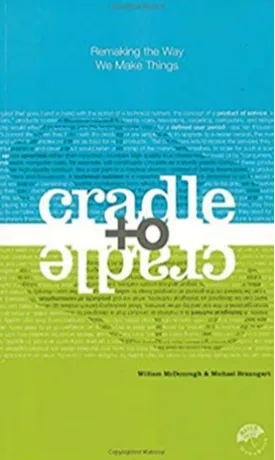William McDonough
William McDonough is one of the most visionary minds in sustainability and the environment. As an architect, writer, public speaker, campaigner and designer, McDonough is an international leader in sustainable practices, promoting innovation, creativity and collaboration as essential steps towards a brighter, healthier, more prosperous future.
McDonough’s career as an architect began in 1983, and since then, he has been a staunch advocate for change and sustainability. In 2004, he released the book 'Cradle to Cradle', which later went on to become a best-seller. In this book, he advocated for the concept of designing products with their eventual decomposition in mind rather than simply designing for the short-term life cycle.
McDonough has argued for a revolutionary shift in thinking when it comes to sustainability. His concept of “Cradle to Cradle” views the entire materials cycle as a source of wealth, emphasizing positive cycles of production, use, and reuse. The idea sees waste not as something to be treated negatively but as a valuable resource or material to be reused and converted back into something useful.
Through his work, McDonough has achieved recognition on a global scale, inspiring citizens and industry leaders to rethink how they look at their resources and create a sustainable future. He has tackled environmental issues ranging from climate change and renewable energy to water and waste management. His ideas have been adapted by some of the world's largest companies, including Microsoft and DaimlerChrysler, to create a more eco-friendly environment for their employees and customers.
McDonough is passionate about creating a global sustainability movement, and his books and speaking engagements have helped spread his message around the world. He emphasizes leaving our current consumer society by developing a new shared purpose to address global ecological and economic balance. He advocates businesses that are profitable but also make positive changes that support people and planet, living within their means as opposed to relying on consumer spending.
In addition to his long list of achievements, McDonough has also written several books that have become staples in the sustainability movement. His 1998 book 'The State of The World' was influential in paving the way for the 2030 Agenda, a universal set of 17 sustainable development goals by the United Nations, adopted in 2015. His 2010 book 'The Upcycle' promotes adoption of an eco-centric approach to modern life with simple concepts such as creating furniture from old wood that would otherwise end up in a landfill, or harvesting natural materials for clothing.
William McDonough’s works have helped encourage a generation of sustainability leaders, from executives and policy-makers to students and activists. His work and ideas are ushering in an era of global responsibility and an increased focus on creating a more sustainable way of life. His dedication to the environment and sustainability continue to inspire and motivate others to improve their own practices to create a better future for us all.

